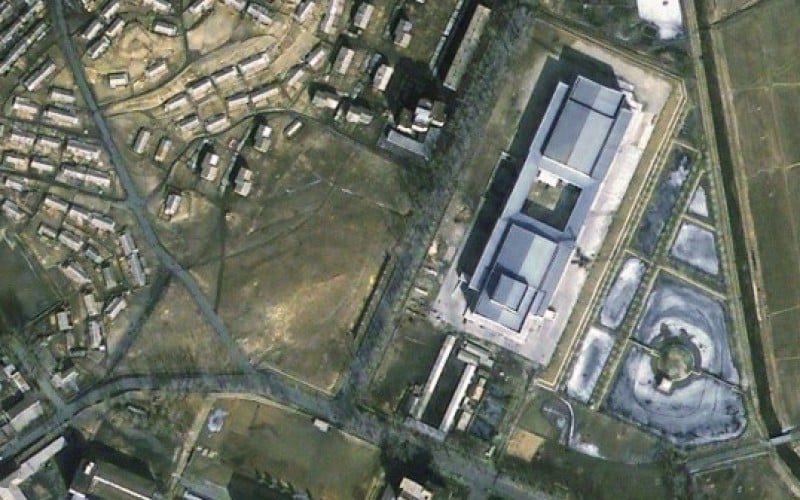
Tensions in the Korean peninsula spiked again after North Korea claimed the successful test of a hydrogen bomb. Despite doubts concerning North Korea’s acquisition of thermonuclear weapons, its ambitious pursuit of nuclear weapons represents a problematic source of regional destabilization and a direct threat to Washington.
For over three decades, North Korea has massively invested in the development and acquisition of nuclear weapons, withdrawing from the Non-Proliferation Treaty in 2003 and strongly demanding the recognition of North Korea as a nuclear power. Under the G. W. Bush Administration, both hawkish demands to refrain from building nuclear strategic capabilities and timid diplomatic attempts to bring the issue of denuclearisation to the multilateral level (i.e. the Six-Party Talks) ultimately failed.
Despite Pyongyang’s promise to stop its acquisition of nuclear military technology in exchange for economic aid, the expansion of the Nuclear Program has been the most vital cornerstone of the North Korean regime’s stability–and also a viable military deterrent. Since Kim Jong-un has succeeded his father as the Great Successor and Bright Son of the Juche, military provocations have gone hand in hand with proclamations of military revanchism over Seoul and Washington.
Kim Jong-un’s desire is to secure and reinforce the loyalty of KPA hardliners and ensure his power is based on the divine right of the Kims–a complex ideological architecture based on the supreme cult of the leader (suryong). North Korea still represents a formidable example of how dynastic power is strongly interconnected with an elite to safeguard its stability. However, succession to power has always involved the risk of violent power struggles, especially in a model such as the North Korean one where no institutionalized mechanisms characterize the selection of the future leader.
Indeed, the incumbent leader can designate his successor inside his family line, advocating his legitimacy inside the ruling elite. Nevertheless, the successor’s legitimacy could be unstable and may require additional internal measures (such as purges and power co-optation) to ensure loyalty and prevent internal coups.
In the first three years of Kim Jong-un’s rule, purges and executions of high-ranking members of Kim’s family–such as Jang Song-taek or close entourage members such as the Defence Minister Hyon Yong-chol and other twelve high-ranking officers – have provided additional evidence that Kim Jong-un will secure his power at any cost.
In this scenario, the acquisition of advanced nuclear capabilities responds to three relevant and pressing issues. Firstly, DPRK leaders have recognised the importance of acquiring a nuclear arsenal to deter potential aggressions aiming to overthrow Kim’s power. Secondly, nuclear weapons have been exploited by Pyongyang as a bargaining chip for access to international aid. Thirdly, transforming the country into a nuclear power would grant Kim Jong-un the status of a great commander.
This last point is one of Kim Jong-un’s most important priorities, considering he is following in the footsteps of his grandfather, Kim Il-Sung, founder of the republic and undefeated hero of the War of Liberation against the Japanese invaders.
Indeed, North Korea’s past behaviour has strongly relied on military provocations and also on the reaffirmation of Pyongyang’s nuclear ambitions through a series of missiles and small atomic tests. These strive to remind the United States and its regional allies that the denuclearisation of North Korea under the current leadership will not be an option in the foreseeable future.
As a result, Pyongyang has concluded three nuclear tests in the last few years ,and it is believed that it possesses enough plutonium to arm 4 – 9 warheads. Its alleged claims about the acquisition of miniaturization technology would represent a further step ahead in developing an ICBM (intercontinental ballistic missile).
Despite strong condemnations expressed, additional sanctions against Pyongyang are uncertain since it would only boost hostile propaganda against Washington, increasing the level of tensions in the peninsula. The Obama Administration’s policy on North Korea is characterised by a strategic patience approach that has not produced the expected result of bringing it back to the Six-Party Talks.
Applying pressure on the country through new punitive sanctions would not produce any further progress on the road to North Korean denuclearisation, especially during this delicate phase in which Washington is prioritising its strategic commitment to the Asia-Pacific region. In this case, an important contribution can be provided by Beijing, which maintains a vital role in supporting Pyongyang both economically and logistically.
In fact, China’s desire for a formal recognition as a regional great power might be an incentive for Beijing to pressure North Korea to reconsider its vocation as a nuclear power nation. Importantly, this would also reduce chances of the expansion of Washington’s military presence as a direct response to new and dreadful tensions.
For a long time, China has actively contributed to prevent the collapse of North Korea in order not to lose the strategic advantages represented by a buffer zone between its territory and the U.S. military presence in South Korea. However, since President Xi took office in 2012, the relations between the two fraternal communist nations have cooled. Beijing could use its economic leverage to influence North Korea’s political elites, playing a decisive role in facilitating a new round of negotiations.
This article was originally published by Global Risk Insights and written by GRI analyst Daniele Ermito.